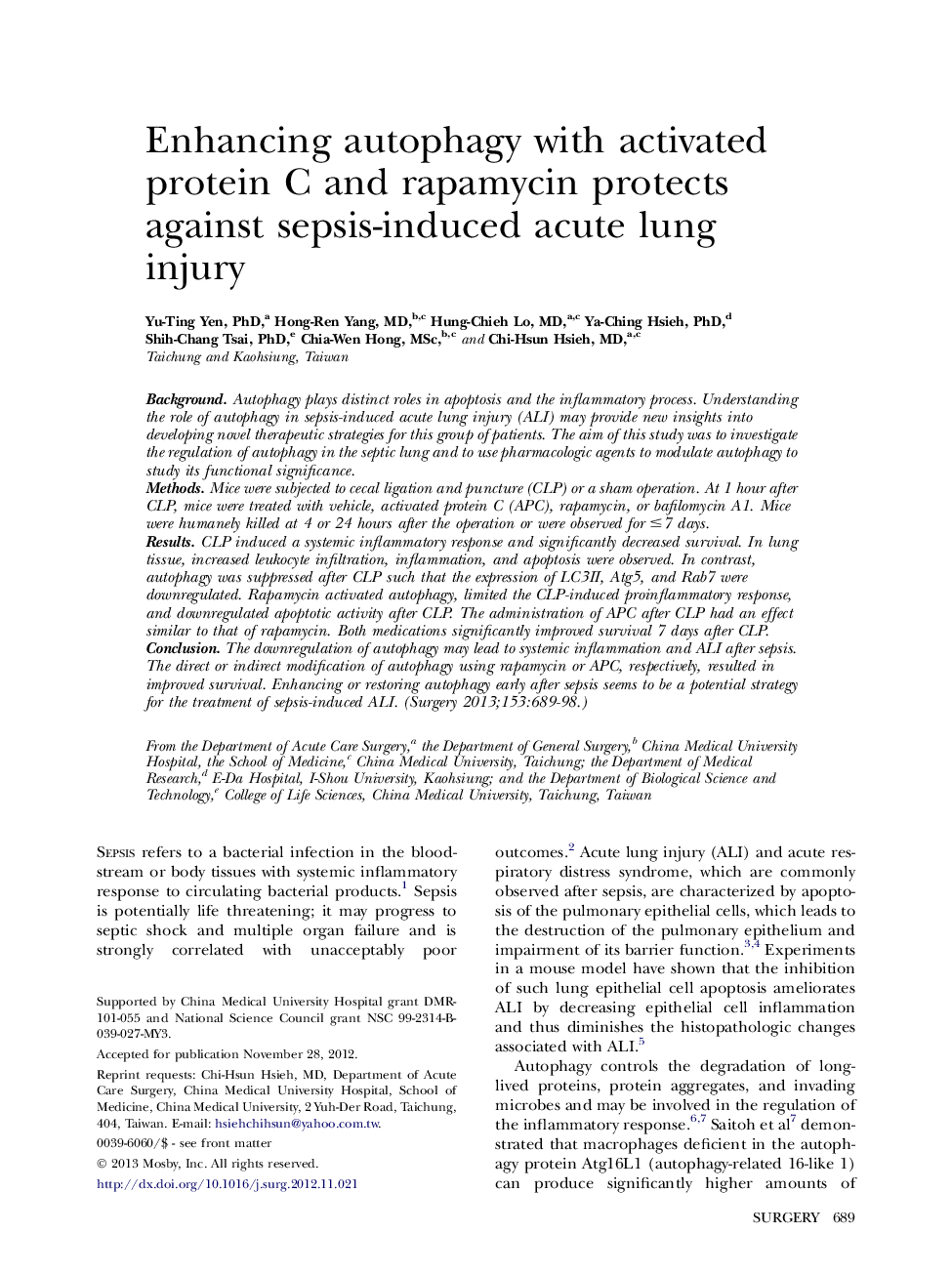| Article ID | Journal | Published Year | Pages | File Type |
|---|---|---|---|---|
| 4307099 | Surgery | 2013 | 10 Pages |
BackgroundAutophagy plays distinct roles in apoptosis and the inflammatory process. Understanding the role of autophagy in sepsis-induced acute lung injury (ALI) may provide new insights into developing novel therapeutic strategies for this group of patients. The aim of this study was to investigate the regulation of autophagy in the septic lung and to use pharmacologic agents to modulate autophagy to study its functional significance.MethodsMice were subjected to cecal ligation and puncture (CLP) or a sham operation. At 1 hour after CLP, mice were treated with vehicle, activated protein C (APC), rapamycin, or bafilomycin A1. Mice were humanely killed at 4 or 24 hours after the operation or were observed for ≤7 days.ResultsCLP induced a systemic inflammatory response and significantly decreased survival. In lung tissue, increased leukocyte infiltration, inflammation, and apoptosis were observed. In contrast, autophagy was suppressed after CLP such that the expression of LC3II, Atg5, and Rab7 were downregulated. Rapamycin activated autophagy, limited the CLP-induced proinflammatory response, and downregulated apoptotic activity after CLP. The administration of APC after CLP had an effect similar to that of rapamycin. Both medications significantly improved survival 7 days after CLP.ConclusionThe downregulation of autophagy may lead to systemic inflammation and ALI after sepsis. The direct or indirect modification of autophagy using rapamycin or APC, respectively, resulted in improved survival. Enhancing or restoring autophagy early after sepsis seems to be a potential strategy for the treatment of sepsis-induced ALI.
